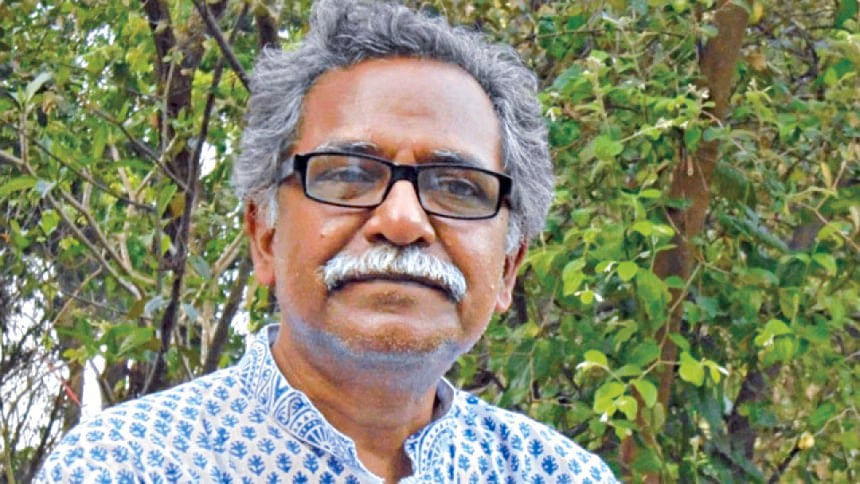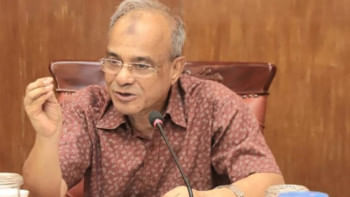‘Signs of new fascism’ now being seen

Noted economist Prof Anu Muhammad yesterday said that signs of a new fascist order beginning to take shape are visible in the country.
"The current situation indicates the arrival of a new wave of fascism. A new fascist force seems to be stirring across the society once again, and it must be resisted," he said.
Anu Muhammad, a member of the Committee for Democratic Rights, made the remarks at a Nagarik Sanghati Rally at the altar of the Raju Sculpture at Dhaka University yesterday afternoon.
The event was organised by the Ganatantrik Chhatra Jote to protest the acquittal of Jamaat-e-Islami leader ATM Azharul Islam of war crime charges and attacks allegedly by Jamaat-Shibir activists on the Jote's marches at Rajshahi University and in Chattogram.
Anu Muhammad, a former Jahangirnagar University teacher, said Islami Chhatra Shibir must realise that the responsibility for war crimes will be imposed upon it equally if it continues to carry the politics of war criminals.
He said there were many incidents during the 1980s in various institutions and places where Shibir emerged as a terrorist force. On this day in 1988, Rajshahi Medical College Chhatra Moitri leader Jamil Akhtar Ratan was killed by Shibir cadres, Prof Anu Muhammad said.
He questioned the war crimes trial process following the Supreme Court's acquittal of Azharul. "How can a person identified as a war criminal be declared innocent? This question will remain with us. This question must be answered."
While acknowledging potential procedural flaws in war crimes trials, he said that Azharul's links to war crimes were established through law. "This is a fact that cannot be dismissed."
"It seems the goal was to declare him innocent," Prof Anu Muhammad said. "If such an identified war criminal is declared innocent, history changes. This is a terrible distortion of history, and a betrayal of the millions of martyrs of 1971."
"Therefore, it is the people's responsibility to protest against this and build resistance."
Prof Anu Muhammad said that Jamaat gained political legitimacy in the 1980s. "The alliances led by the Awami League and the BNP legitimised them as democratic forces during the anti-Ershad movement. Through this recognition, Jamaat-e-Islami was rehabilitated."
Prof Anu Muhammad said that in 1995, the Awami League and Jamaat conducted movements together, and when the BNP came to power in 2001, Jamaat members accused of war crimes became ministers as part of the Four-Party Alliance.
He criticised the lack of response to gender-based attacks, citing instances where girls were targeted and attacked, kicked, or subjected to hate campaigns, or where female college teachers were harassed. "We see no government action."
The former JU teacher further said that the mass uprising once ignited hopes for a new political structure among the people.
"But in reality, the government appears indifferent. Its presence is hardly felt. In some cases, there is even evidence of involvement by state forces in the attacks and repression," he said.
He added that whenever women, students, workers, or teachers speak up for their rights, they come under attack. "And those who carry out the attacks are shielded, as they have patrons within the government".
He said that the forces that killed Ratan in 1988 are now attacking those who are protesting against injustice.
Prof Anu Muhammad condemned attempts to frame war crimes trials as anti-Islamic. "The vast number of pious Muslim people in Bangladesh are themselves victims of war crimes. Most of the millions who were killed were practising Muslims."
"We must stand against all such political malpractices. We must present issues correctly and, along with protesting and resisting such oppression and attacks, we must also question the government's role," he added.

 For all latest news, follow The Daily Star's Google News channel.
For all latest news, follow The Daily Star's Google News channel. 



Comments